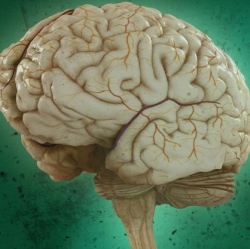
In the never-ending drive for quality and productivity, leading software companies, including SAP, Microsoft, HPE, Amazon, and Salesforce.com, have discovered a new source of overqualified and underemployed workers: people whose brains are wired differently than the average person.
Everyone’s brain operates differently, and these companies hope to leverage the strengths in those differences to improve the software development process.
The best examples of neurodiversity advantage are currently in the field of autism employment. According to the CDC, one in every 68 births this year will be diagnosed with autism spectrum disorder, or ASD. The condition itself is very diverse, with varying degrees of impact, but we are beginning to understand it, not just as a disability, but for the special abilities it can enable.
Software companies, always looking to “turn a bug into a feature,” are discovering that adults with ASD can be a valuable part of the workforce, bringing unique skills and perspective to their organizations.
Some workers on the autism spectrum are able to focus longer on details and patterns and can outperform neurotypical people on repetitive tasks, like software QA, image analysis, or cybersecurity. HPE has developed a team of autistic security analysts who scan x-ray images for hazardous items (similar to TSA security screeners) on 30 minutes shifts, a 50 percent uplift from neurotypical employees, who only last about 20 minutes.
While many neurotypical workers find this work exhausting, some workers with ASD like the consistency and clarity of these jobs. This skill is also valuable in identifying defects in software, websites, and graphic projects. Many companies, including HPE, ULTRA Testing, and Aspiritech, have demonstrated improved quality and productivity in software QA with an ASD workforce.
As you can imagine, systematic thinkers can see patterns and connections more easily, and this may explain why some individuals with ASD show improved performance in pattern recognition and data analysis. These skills are critical to “big data” and cybersecurity. HPE and Auticon in Germany have active programs using autistic workers in these areas. Interestingly, 30 percent of HPE’s cybersecurity team are women.
While some neurodiversity programs look for ASD workers with the patience for repetitive tasks, there are many examples of other jobs with more varied responsibilities. For example, SAP has successful neurodiverse employees in product management, human resources, and customer service.
